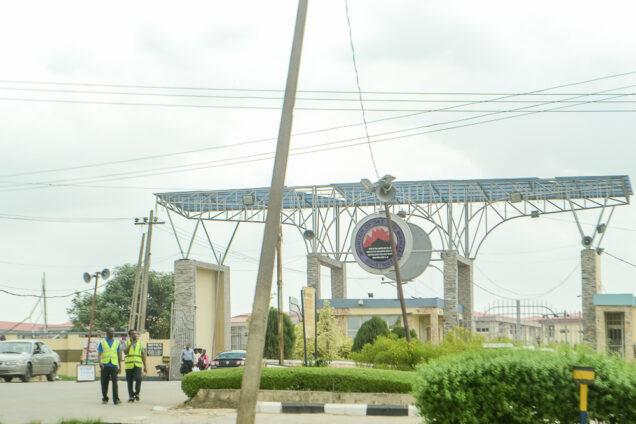Official Ncos Salary Structure For 2025 In Nigeria

Non-Commissioned Officers (NCOs) serve as the backbone of Nigeria's paramilitary agencies, including the Nigeria Security and Civil Defence Corps (NSCDC), Nigerian Immigration Service (NIS), Nigerian Customs Service (NCS), and Nigerian Correctional Service (NCoS). These agencies operate under the Consolidated Paramilitary Salary Structure (CONPASS), which standardizes pay across various ranks and services. In 2025, NCOs have seen significant salary adjustments, particularly with the implementation of the ₦70,000 minimum wage for entry-level positions.
Understanding the Consolidated Paramilitary Salary Structure (CONPASS)
The Consolidated Paramilitary Salary Structure (CONPASS) is the official salary scale for paramilitary agencies in Nigeria. It consolidates various allowances into the basic salary, ensuring transparency and uniformity across the services.The structure includes allowances such as transport, meal subsidy, hazard, housing maintenance, uniform maintenance, general services, torchlight, detective, hardiness, plain cloth, furniture, and personal servant allowances for entitled officers. However, rent allowance remains separate and is not consolidated with the rest of the emoluments.
2025 NCOs Salary Structure by Agency
1. Nigeria Security and Civil Defence Corps (NSCDC)
The NSCDC's NCOs are categorized into various ranks, each with specific responsibilities and corresponding salaries:
|
Rank |
Grade Level |
Monthly Salary (₦) |
Annual Salary (₦) |
|
Assistant Cadet Inspector (ACI) |
5 |
70,000 |
840,000 |
|
Cadet Inspector (CI) |
6 |
90,456 |
1,085,472 |
|
Assistant Superintendent of Corps II (ASCI II) |
7 |
127,000 |
1,524,000 |
|
Assistant Superintendent of Corps I (ASCI I) |
8 |
156,000 |
1,872,000 |
|
Deputy Superintendent of Corps (DSC) |
9 |
212,000 |
2,544,000 |
|
Superintendent of Corps (SC) |
10 |
298,000 |
3,576,000 |
|
Chief Superintendent of Corps (CSC) |
11 |
419,000 |
5,028,000 |
|
Assistant Commandant of Corps (ACC) |
12 |
483,000 |
5,796,000 |
Note: These figures are based on available data and may vary depending on specific circumstances and allowances.
2. Nigerian Immigration Service (NIS)
The NIS follows a similar rank structure for its NCOs:
|
Rank |
Grade Level |
Monthly Salary (₦) |
Annual Salary (₦) |
|
Chief Superintendent of Immigration (CSI) |
10 |
1,800,000 – 2,300,000 |
21,600,000 – 27,600,000 |
|
Superintendent of Immigration (SI) |
9 |
1,500,000 – 2,000,000 |
18,000,000 – 24,000,000 |
|
Deputy Superintendent of Immigration (DSI) |
8 |
1,200,000 – 1,800,000 |
14,400,000 – 21,600,000 |
|
Assistant Superintendent I (ASI I) |
7 |
1,000,000 – 1,500,000 |
12,000,000 – 18,000,000 |
|
Immigration Assistant III |
6 |
400,000 – 600,000 |
4,800,000 – 7,200,000 |
Note: These figures include basic salary and may vary based on allowances and specific assignments.
3. Nigeria Customs Service (NCS)
The NCS's NCOs are compensated as follows:
|
Rank |
Grade Level |
Monthly Salary (₦) |
Annual Salary (₦) |
|
Customs Assistant |
5 |
398,506 – 450,321 |
4,782,072 – 5,403,852 |
|
Assistant Inspector of Customs |
6 |
457,358 – 511,484 |
5,488,296 – 6,137,808 |
|
Inspector of Customs |
7 |
511,484 – 574,110 |
6,137,808 – 6,889,320 |
|
Assistant Superintendent of Customs |
8 |
574,110 – 648,000 |
6,889,320 – 7,776,000 |
|
Superintendent of Customs |
9 |
648,000 – 730,000 |
7,776,000 – 8,760,000 |
Note: These figures are based on available data and may vary depending on specific circumstances and allowances.
4. Nigerian Correctional Service (NCoS)
The NCoS's NCOs are compensated as follows:
|
Rank |
Grade Level |
Monthly Salary (₦) |
Annual Salary (₦) |
|
Assistant Cadet Inspector (ACI) |
5 |
70,000 |
840,000 |
|
Cadet Inspector (CI) |
6 |
90,456 |
1,085,472 |
|
Assistant Superintendent of Corrections II (ASCI II) |
7 |
127,000 |
1,524,000 |
|
Assistant Superintendent of Corrections I (ASCI I) |
8 |
156,000 |
1,872,000 |
|
Deputy Superintendent of Corrections (DSC) |
9 |
212,000 |
2,544,000 |
|
Superintendent of Corrections (SC) |
10 |
298,000 |
3,576,000 |
|
Chief Superintendent of Corrections (CSC) |
11 |
419,000 |
5,028,000 |
|
Assistant Controller of Corrections (ACC) |
12 |
483,000 |
5,796,000 |
Note: These figures are based on available data and may vary depending on specific circumstances and allowances.
Allowances and Benefits for NCOs
In addition to their basic salaries, Non-Commissioned Officers (NCOs) in Nigeria's paramilitary agencies are entitled to various allowances and benefits under the Consolidated Paramilitary Salary Structure (CONPASS). These allowances are designed to support officers in their duties and improve their welfare.
1. Hazard Allowance
This allowance compensates officers for the risks associated with their duties, including exposure to dangerous situations.
2. Transport Allowance
Officers receive this allowance to cover commuting expenses between their residence and place of duty.
3. Meal Subsidy
To assist with daily food expenses, officers are provided with a meal subsidy.
4. Utility Allowance
This allowance helps officers manage the costs of utilities such as electricity and water.
5. House Maintenance Allowance
Officers receive this allowance to maintain their official residences, ensuring they remain habitable.
6. Uniform Maintenance Allowance
To maintain the quality and appearance of their uniforms, officers are provided with a uniform maintenance allowance.
7. General Services Allowance
This allowance covers various miscellaneous expenses incurred during official duties.
8. Torchlight Allowance
Officers are provided with this allowance to cover the cost of maintaining their torchlights, essential for night operations.
9. Detective Allowance
This allowance is given to officers involved in investigative duties, compensating them for the additional responsibilities.
10. Hardiness Allowance
Officers working in challenging environments receive this allowance to compensate for the physical demands of their duties.
11. Plain Cloth Allowance
This allowance is provided to officers required to operate in plain clothes, covering the cost of appropriate attire.
12. Furniture Allowance
Officers are entitled to a furniture allowance to furnish their official residences.
13. Personal Servant Allowance
Entitled officers receive this allowance to cover the cost of hiring personal servants.
14. Rent Allowance
While not consolidated with other allowances, officers not provided with government accommodation are entitled to rent allowance to cover housing costs.
Minimum Wage Implementation
In 2025, the Nigerian government implemented a ₦70,000 minimum wage for federal public servants, including NCOs in paramilitary agencies. This adjustment aims to improve the welfare of officers and align their compensation with current economic realities. The implementation of the minimum wage is part of the government's commitment to enhancing the living standards of its workforce.
Career Progression and Opportunities
NCOs in Nigeria's paramilitary agencies have opportunities for career advancement through promotions based on merit, experience, and training. Advancement to higher ranks comes with increased responsibilities and corresponding salary adjustments. Additionally, officers may have opportunities for specialized training and assignments, further enhancing their professional development.
Frequently Asked Questions (FAQs)
1. What is the Consolidated Paramilitary Salary Structure (CONPASS)?
CONPASS is the official salary scale for paramilitary agencies in Nigeria, consolidating various allowances into the basic salary to ensure transparency and uniformity across services.
2. Are allowances included in the basic salary?
Yes, allowances such as transport, meal subsidy, hazard, utility, house maintenance, uniform maintenance, general services, torchlight, detective, hardiness, plain cloth, furniture, and personal servant allowances are consolidated with the basic salary. However, rent allowance is not consolidated and is payable separately if accommodation is not provided.
3. How does the ₦70,000 minimum wage affect NCOs?
The ₦70,000 minimum wage ensures that all federal public servants, including NCOs, receive a baseline salary that meets current economic standards, improving their financial well-being.
4. Can NCOs in different agencies expect similar salaries?
While the CONPASS provides a standardized salary structure, actual salaries may vary slightly between agencies due to specific allowances and agency-specific adjustments.
5. How can NCOs advance their careers?
NCOs can advance through promotions based on performance, experience, and completion of required training programs.Advancement to higher ranks comes with increased responsibilities and salary adjustments.
Conclusion
The 2025 salary structure for Non-Commissioned Officers in Nigeria's paramilitary agencies reflects the government's commitment to improving the welfare of its officers. With the implementation of the ₦70,000 minimum wage and comprehensive allowances under CONPASS, NCOs are better equipped to perform their duties effectively. Career progression opportunities further enhance the professional development of officers, ensuring a motivated and capable workforce dedicated to serving the nation.
Post A Comment
Your email address will not be published. Required fields are marked *









































































































































0 Comments